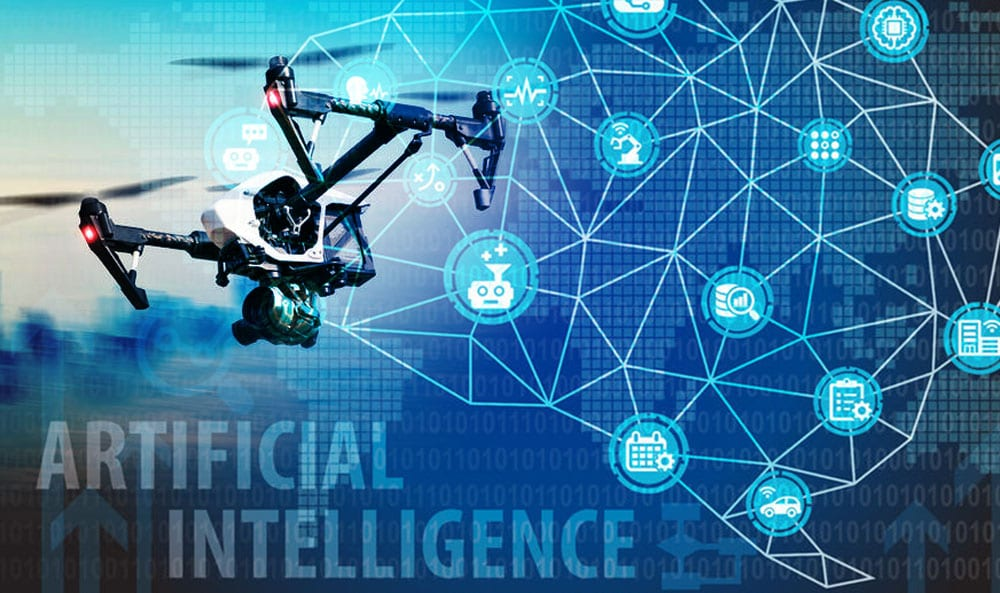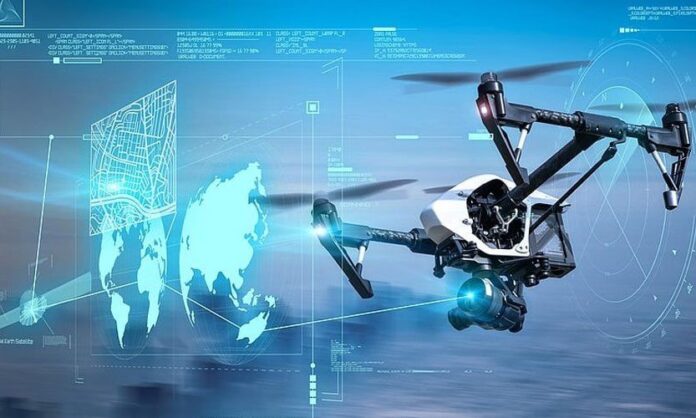How AI is Revolutionizing Drone Capabilities
In recent years, drones have soared beyond being just recreational gadgets. With the integration of artificial intelligence (AI), these flying devices are transforming industries and reshaping the way we interact with our surroundings. AI-enabled drones are becoming powerful tools in fields like agriculture, construction, security, and even emergency response. They’re no longer just remote-controlled toys but sophisticated systems capable of decision-making, data analysis, and autonomous operations. Let’s dive into how AI-enabled drones are shaping the future of aerial technology.
The Rise of AI in Drones
At their core, traditional drones were controlled manually by human operators. While this is still true for many consumer-level drones, the incorporation of AI is taking these devices to the next level. AI gives drones the ability to learn, adapt, and operate with minimal human intervention. This shift allows them to perform more complex tasks, analyze vast amounts of data, and improve their accuracy over time.
AI-powered drones rely on advanced algorithms, machine learning, and computer vision to navigate and interact with their environment. They can recognize objects, avoid obstacles, and make real-time decisions based on their surroundings. This makes them incredibly valuable across various sectors, where efficiency, speed, and accuracy are paramount.
AI-Enabled Drones in Agriculture
One of the most prominent applications of AI-enabled drones is in agriculture. These drones are revolutionizing the way farmers monitor crops and manage their fields. Traditionally, crop monitoring was labor-intensive and time-consuming. Farmers had to physically inspect large fields, looking for signs of disease, pests, or poor growth. Now, AI-enabled drones equipped with high-resolution cameras and sensors can scan entire fields in minutes.
Using AI, these drones can identify areas where crops are under stress, detect diseases, and even predict future crop yields. This data helps farmers make informed decisions about irrigation, fertilization, and pest control. The result is more efficient farming, reduced costs, and healthier crops. In fact, some AI-enabled drones can even plant seeds, making the process even more automated and efficient.
Also Read: How to Use AI for Translation
Enhancing Security and Surveillance
Security is another area where AI-enabled drones are making a significant impact. Whether it’s monitoring large public events, protecting critical infrastructure, or assisting law enforcement, these drones are invaluable for surveillance. Traditional security methods involve stationary cameras or manual patrols, but AI-powered drones can cover more ground, respond to threats faster, and provide real-time updates.
Thanks to AI, these drones can recognize suspicious activities, track movements, and even identify individuals. For instance, in large events, AI-enabled drones can detect crowd anomalies, such as someone carrying a suspicious object or moving erratically. This helps law enforcement respond quickly to potential threats, ensuring public safety. The ability to operate autonomously also means that these drones can continue to monitor areas for extended periods, reducing the need for constant human supervision.
Revolutionizing Search and Rescue Operations
AI-enabled drones are becoming crucial tools in search and rescue missions. In the aftermath of natural disasters like earthquakes, floods, or wildfires, finding survivors quickly is critical. Traditional search methods can be slow and dangerous, often relying on ground teams that are limited by terrain and weather conditions. AI-powered drones, however, can cover vast areas in a fraction of the time.
These drones are equipped with thermal imaging cameras and AI algorithms that help them detect heat signatures of survivors. They can fly over debris, scan hard-to-reach areas, and send real-time data back to rescue teams. Some AI-enabled drones are even designed to drop supplies like food, water, or medical kits to stranded individuals. This ability to act autonomously, make quick decisions, and analyze data on the go makes them lifesavers in emergency situations.

AI-Enabled Drones in Delivery Services
The delivery industry is also embracing AI-enabled drones. Companies like Amazon have already started experimenting with drone deliveries, and AI is playing a key role in making this vision a reality. AI helps drones navigate complex urban environments, avoid obstacles like buildings and power lines, and ensure safe delivery to customers.
These drones can optimize flight paths, reducing energy consumption and speeding up delivery times. With AI’s predictive capabilities, they can also anticipate weather changes or identify the safest routes in real time. This level of automation is expected to revolutionize the logistics industry, providing faster and more efficient delivery options for consumers.
Challenges Facing AI-Enabled Drones
While AI-enabled drones hold incredible potential, they are not without challenges. Privacy concerns are one of the biggest issues. As these drones become more widespread, questions about data collection, surveillance, and individual privacy arise. Governments and regulatory bodies will need to establish clear guidelines to protect citizens’ rights while allowing for the beneficial use of this technology.
Another challenge is the potential for hacking or misuse. As drones become more autonomous, the risk of cyber-attacks increases. Ensuring that AI systems in drones are secure from outside interference is critical to prevent malicious use. Finally, there are also technical limitations to consider, such as battery life, weather conditions, and the need for reliable communication systems in remote areas.
Conclusion
AI-enabled drones represent a significant leap forward in drone technology, unlocking new possibilities for industries and consumers alike. From transforming agriculture and enhancing security to revolutionizing search and rescue operations, these drones are proving their worth across multiple sectors. With AI advancements like Auto-GPT, drones can automate complex tasks, make better real-time decisions, and continually improve their performance. As these technologies evolve, the capabilities of AI-enabled drones will only grow, making them indispensable tools in our daily lives.
However, with these advancements come challenges, particularly around privacy and security. Addressing these concerns while embracing the potential of AI-enabled drones and leveraging innovations like Auto-GPT will be key to ensuring their successful integration into society. Ultimately, these flying marvels are set to change the way we approach everything from farming to emergency response, offering faster, smarter, and more efficient solutions for the future.
Ready to explore how AI-enabled drones and Auto-GPT can transform your business or industry? Start harnessing the power of this revolutionary technology today!




